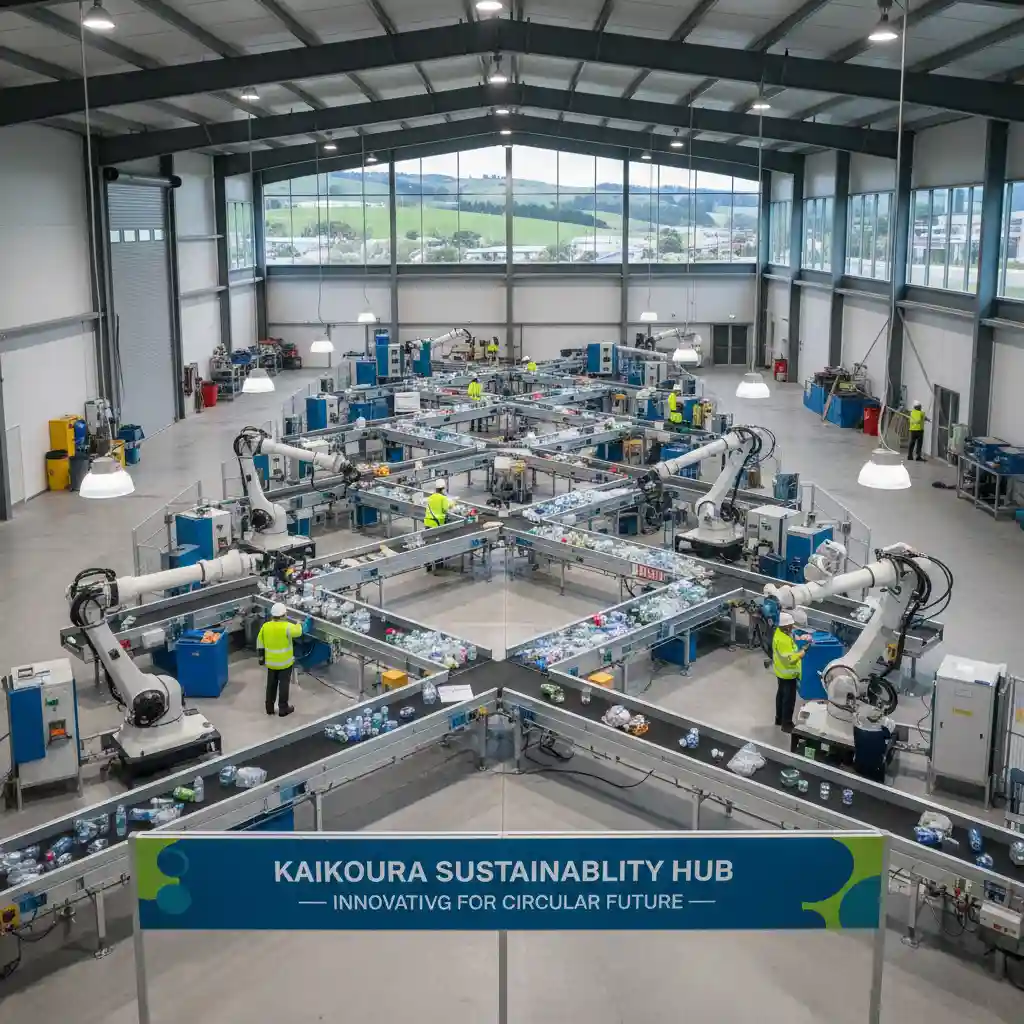New Zealand’s Circular Economy: Businesses Go Green
Discover how innovative Kiwi businesses are reshaping their operations to embrace sustainability, reduce waste, and build a thriving circular economy.
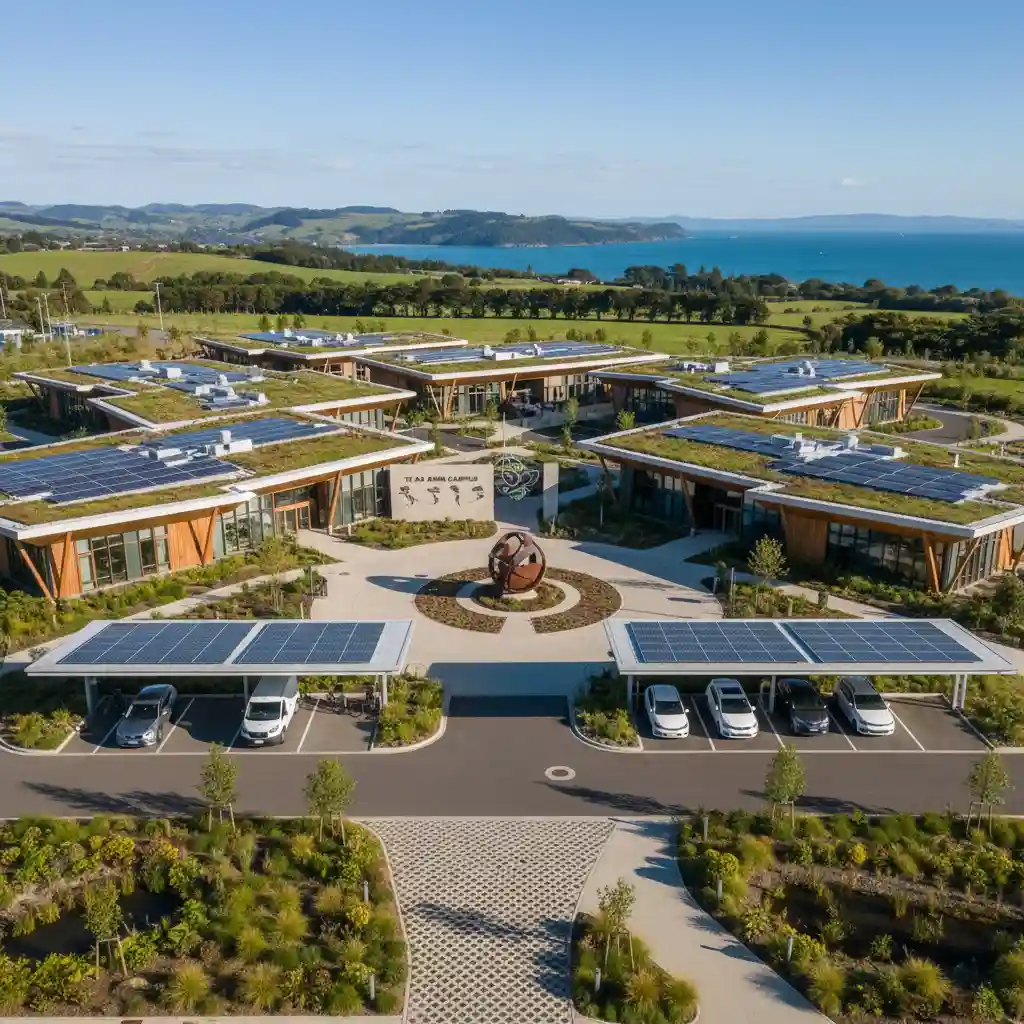
Table of Contents
Understanding the Circular Economy
In an era defined by environmental urgency, the traditional ‘take-make-dispose’ linear economic model is proving unsustainable. New Zealand, with its strong connection to nature and a burgeoning desire for a cleaner future, is at the forefront of a global shift: the move towards a circular economy.
But what exactly is it? At its heart, a circular economy is a systemic approach to economic development designed to benefit businesses, society, and the environment. It’s about designing out waste and pollution, keeping products and materials in use, and regenerating natural systems.
“The circular economy isn’t just about recycling; it’s about redesigning how we make, use, and dispose of everything, aiming for a system where waste simply doesn’t exist.”
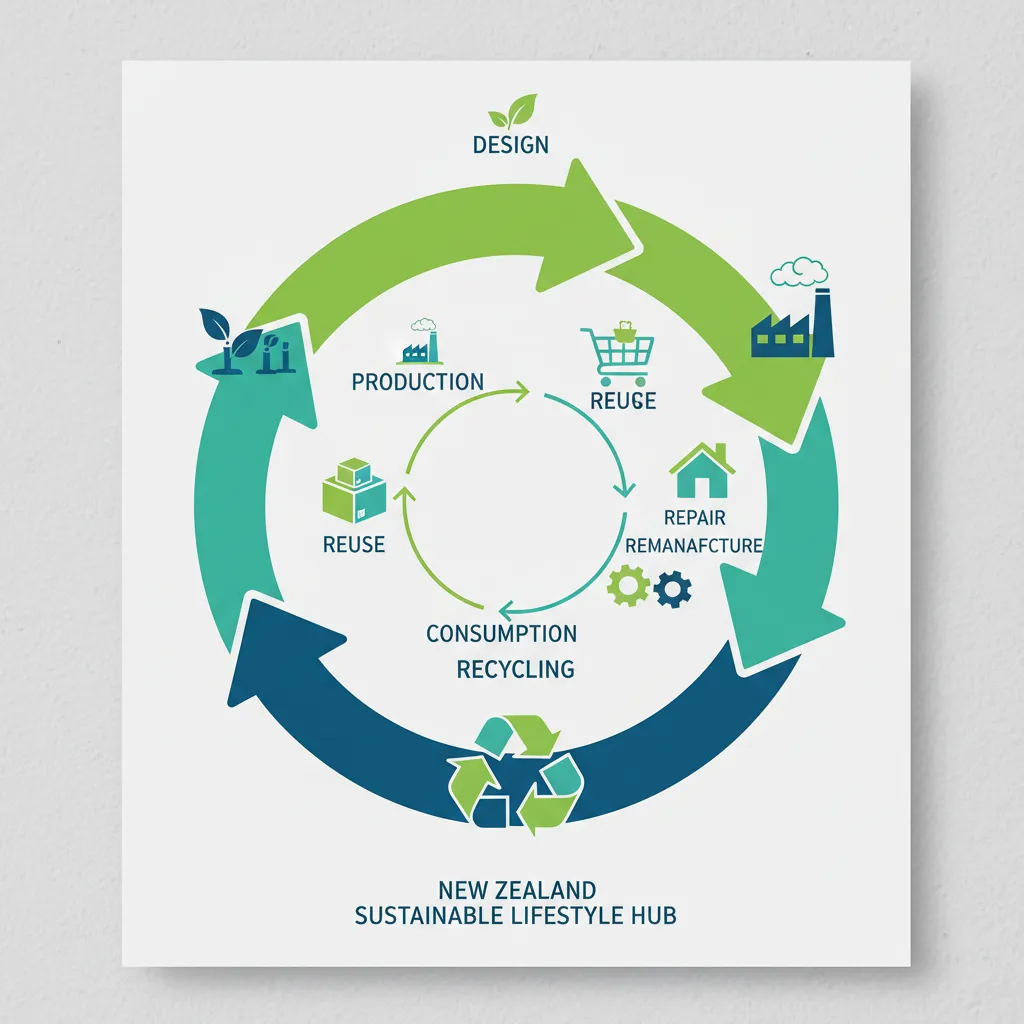
Why NZ Businesses Are Embracing Circularity
The transition to a circular economy in New Zealand is gaining momentum for several compelling reasons. Beyond the ethical imperative to protect Aotearoa’s unique environment, businesses are discovering tangible benefits that impact their bottom line and brand reputation.
Environmental Stewardship and Resource Security
Kiwi companies recognize the urgency of climate change and resource depletion. By adopting circular practices, they reduce their ecological footprint, minimise landfill waste, and decrease reliance on virgin materials, enhancing resource security in the long term.
Economic Opportunities and Innovation
The circular model sparks innovation, creating new business opportunities in areas like product-as-a-service, repair services, and advanced recycling. This leads to job creation and economic diversification.
Stat Callout:
A recent report by Accenture estimated that the circular economy could generate NZ$1.5 to NZ$4.5 billion in economic benefits for New Zealand annually by 2030, alongside significant environmental advantages.
Consumer Demand and Brand Reputation
Modern consumers, particularly in New Zealand, are increasingly conscious of the environmental impact of their purchases. Businesses that demonstrate a commitment to sustainability and circular practices often see improved brand loyalty and market differentiation.

Key Principles in Action: Kiwi Examples
From start-ups to established giants, New Zealand’s Circular Economy businesses are applying circular principles in tangible ways. Here’s how some are leading the charge:
Designing Out Waste & Pollution (Eco-Design)
- Allbirds: While a global brand, its NZ roots influence its commitment to using sustainable, natural materials like merino wool and eucalyptus fibres, and designing shoes for longevity and minimal environmental impact.
- Future Post: Transforms hundreds of tonnes of plastic waste (farm plastics, milk bottles) into durable fence posts, effectively keeping plastic out of landfills and creating a valuable product.
Keeping Products & Materials in Use (Reuse, Repair, Remanufacture)
- M.U.S.T. (Material Utilisation and Salvage Trust): A Wellington-based organisation that diverts construction and demolition waste from landfill, salvaging reusable materials and selling them back into the community.
- The Common Unity Project Aotearoa: Through initiatives like their ‘Wellington Repair Cafe’, they empower communities to repair items, extending their lifespan and fostering practical skills.
- Reusabowl: Offers a reusable takeaway bowl service for cafes, reducing single-use packaging waste across multiple cities.
Regenerating Natural Systems
- Compost Collective: Educates and empowers Aucklanders to reduce food waste through composting and worm farming, returning organic matter to the earth.
- Ecogrow: Specialises in composting organic waste from various industries, turning it into high-quality soil conditioners and composts for agriculture and horticulture.
Stat Callout:
New Zealand produces approximately 17.5 million tonnes of waste annually. Circular economy initiatives are crucial to significantly reducing this figure and diverting valuable resources from landfill.
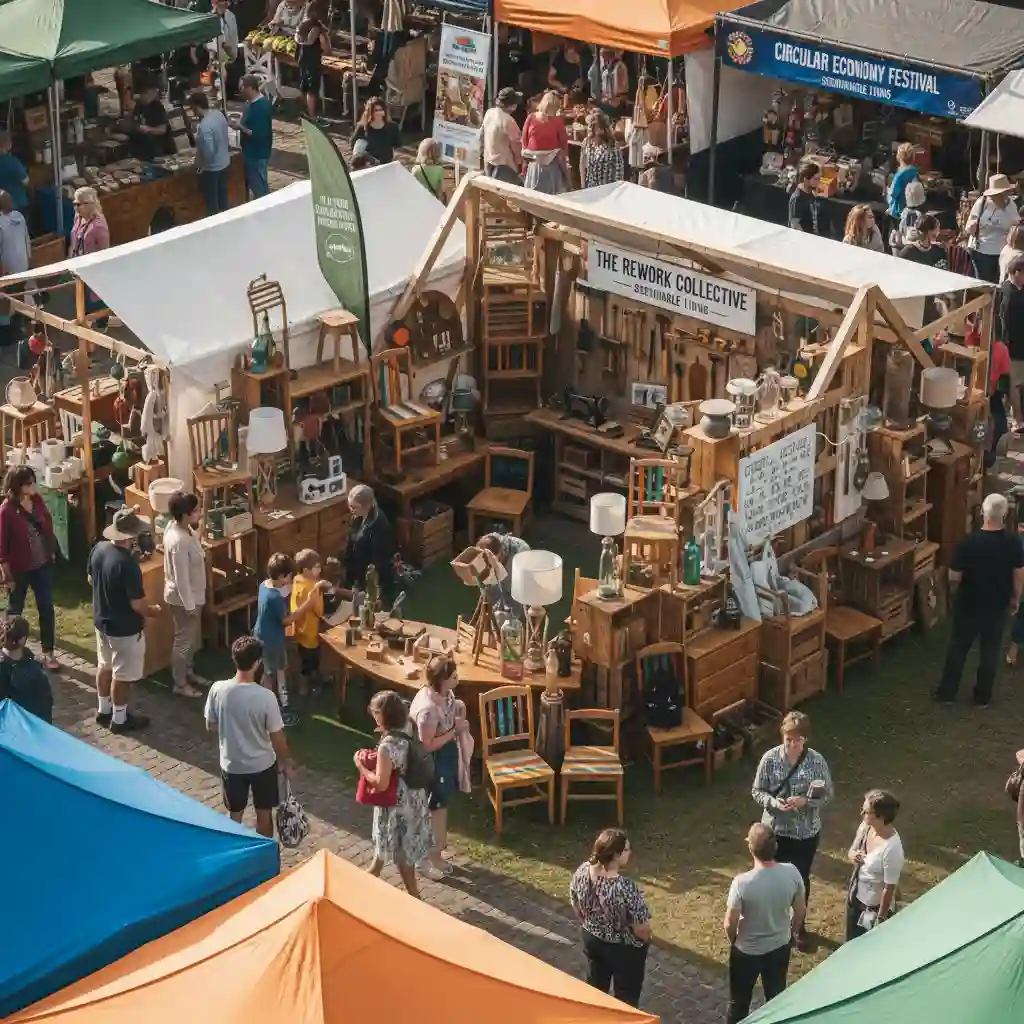
Benefits of Circularity for Businesses & Consumers
The shift towards a circular economy isn’t just an environmental movement; it’s a strategic move offering profound advantages for all stakeholders.
For Businesses:
- Cost Savings: Reducing waste, optimising material use, and finding value in by-products can significantly lower operational costs.
- Increased Innovation & Competitiveness: Drives new product development, service models, and process improvements, offering a competitive edge.
- Enhanced Brand Reputation: Appeals to environmentally conscious consumers, boosting public image and loyalty.
- Resource Security: Less reliance on fluctuating global commodity markets by reusing and recovering materials.
- New Revenue Streams: Opportunities to sell refurbished goods, offer repair services, or licence intellectual property for sustainable designs.
For Consumers:
- Higher Quality, Durable Products: Products designed for longevity and repair mean better value for money.
- Affordable Options: Second-hand, repaired, or refurbished goods often come at a lower price point.
- Reduced Environmental Impact: The ability to make purchasing choices that align with personal values, contributing to a healthier planet.
- Convenience & Access: Growing availability of repair services, product-as-a-service models, and refill stations.
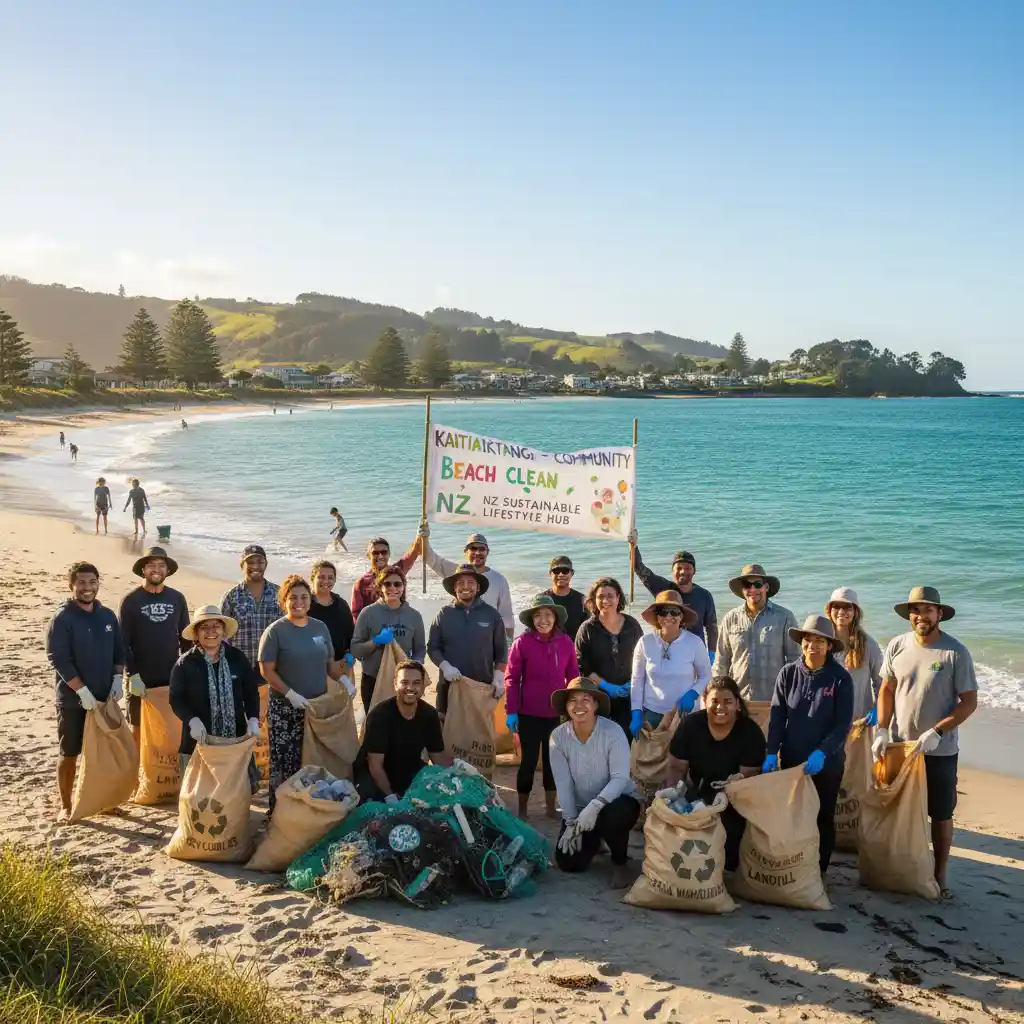
The Road Ahead for New Zealand
While significant progress has been made, the journey to a fully circular economy in New Zealand is ongoing. It requires continued collaboration between businesses, government, researchers, and consumers. Policy support, investment in circular infrastructure, and public awareness campaigns are vital to accelerate this transition.
The collective vision is clear: a thriving Aotearoa where waste is a concept of the past, resources are valued, and businesses contribute positively to both prosperity and environmental health. The success stories emerging from New Zealand’s Circular Economy today are just the beginning.
Frequently Asked Questions (FAQ)
What is the main difference between a linear and a circular economy?
A linear economy follows a ‘take-make-dispose’ model, extracting raw materials, manufacturing products, and then disposing of them as waste. A circular economy, conversely, aims to keep resources in use for as long as possible, extracting the maximum value from them while in use, then recovering and regenerating products and materials at the end of their service life.
How does the circular economy benefit New Zealand businesses specifically?
For New Zealand businesses, the circular economy offers cost reductions through waste minimisation and efficient resource use, opens new revenue streams from innovative circular products and services, enhances brand reputation with eco-conscious consumers, and builds greater resilience against global supply chain disruptions.
Are there government initiatives supporting the circular economy in NZ?
Yes, the New Zealand government supports the circular economy through various initiatives, including the Waste Minimisation Act, grants for waste reduction projects, and strategies aimed at reducing specific waste streams (e.g., plastics, organic waste). Organisations like the Ministry for the Environment also provide guidance and resources.
How can consumers contribute to the circular economy in New Zealand?
Consumers can contribute by choosing products designed for durability and repair, supporting businesses with circular practices, utilising repair services, participating in local recycling and composting schemes, buying second-hand, and reducing overall consumption, especially of single-use items.
References & Sources
- Ellen MacArthur Foundation. (n.d.). What is the Circular Economy? Retrieved from ellenmacarthurfoundation.org
- Accenture. (2020). Circular Advantage: Innovative Business Models and Technologies to Create Value from Waste. (Referenced for economic benefit figures)
- Ministry for the Environment. (n.d.). Waste and recycling in New Zealand. Retrieved from environment.govt.nz
- Sustainable Business Network. (n.d.). Circular Economy Programme. Retrieved from sustainable.org.nz
- Statistics New Zealand. (n.d.). Environmental indicators: Waste. (Referenced for waste statistics)
